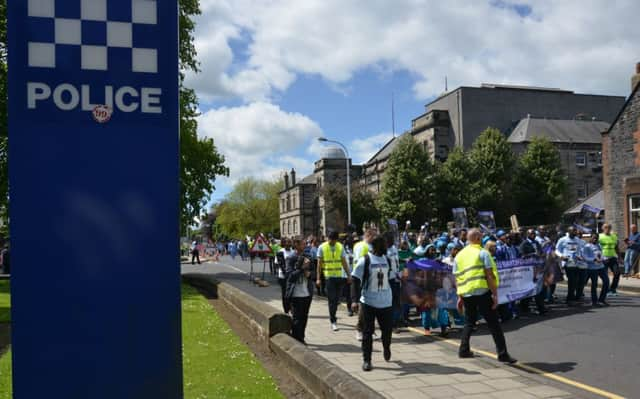Police officers '˜losing confidence' in police watchdog


The Scottish Police Federation (SPF) said it had concerns about the effectiveness and independence of the Police Investigations and Review Commissioner (Pirc).
The Pirc is investigating the deaths of Mr Bayoh and those of John Yuill and Lamara Bell who died in July last year after their car crashed on the M9.
Advertisement
Hide AdAdvertisement
Hide AdIn a submission to the Scottish Parliament’s policing committee, the SPF’s general secretary, Calum Steele, said police officers were often treated like suspects by the Pirc, despite being told they were witnesses.
He said: “Our members are fast losing confidence in the effectiveness and genuine independence of the Pirc.
“It is an increasingly common theme that Pirc investigations and comments on investigations appear to be based on a practice of seeking the evidence to substantiate the allegation, rather than gathering all the evidence to see if the allegation can be substantiated.”
Mr Steele said some police officers had been interviewed for hours by the Pirc without rest.
He said one officer, who was being treated as a witness, was unable to use the toilet unaccompanied during their seven-hour “interview/interrogation”.
There was anger after Mr Bayoh’s death last year that it took around a month for police officers to give evidence to the Pirc. The Pirc, which has no statutory power to compel police officers or staff to give evidence, said it had repeatedly tried to speak to arresting officers following the incident.
In his submission to Holyrood’s justice sub-committee on policing, Mr Steele also criticised Police Scotland’s counter corruption unit, which he described as acting with “impunity and with scant regard for the rules of fairness or proportionality”.
The CCU is currently being reviewed by HM Inspectorate of Constabulary in Scotland after it emerged officers broke data guidelines to obtain details of a journalist’s source.
Advertisement
Hide AdAdvertisement
Hide AdA spokesman for the Pirc said: “The commissioner has only recently been made aware of the content of the Scottish Police Federation letter to the justice sub-committee and has requested the federation to provide specific information relating to the concerns raised so that she may address those matters and take any appropriate action.”